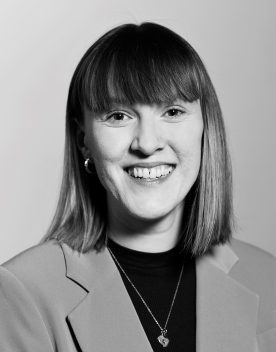Modern data analyses and workflows for PhD students & Postdocs
Reproducibility and open scientific practices are increasingly demanded of scientists and researchers. Training on how to apply these practices in data analysis has not kept up with demand. With this course, we hope to begin meeting that demand.
By the end of the course, participants will have a basic level of proficiency in using the R statistical computing language, enabling them to improve their data and code literacy, and to conduct a modern and reproducible data analysis. The course will place particular emphasis on research in diabetes and metabolism; it will be taught by instructors working in this field and it will use relevant examples where possible.
The course, found at the website https://r-cubed-intro.rostools.org/, is designed as a series of participatory live-coding lessons, where the instructor and learner code together, along with hands-on exercises interspersed throughout the course and a final group assignment to do a simple data analysis project. In the course we will describe the fundamentals of what an open and reproducible data analysis looks like and then create a project that applies some of the basics of these concepts using R. The learning objectives are:
Because learning and coding is ultimately not just a solo activity, in addition to the group project work, during this course we also aim to provide opportunities to chat with fellow participants, learn about their work and how they do analyses, and to build networks of support and collaboration.
The course will place particular emphasis on research in diabetes, health, and metabolism; it will be (mostly) taught by instructors working in this field and it will use relevant examples where possible.
The specific software and technologies we will cover in this course are R, RStudio, Git, GitHub, and Quarto, while the specific R packages are dplyr and ggplot2 packages.
Instructors:
Luke Johnston, Team Leader, Steno Diabetes Center Aarhus (DK)
Anders Askeland, Novo Nordisk A/S
Participants will be selected based on a motivational statement provided via the registration form. We will select participants with a clear, relevant motivation.
To participate in the course, you will have to be a PhD Student or Postdoc working in the fields of diabetes, metabolism or classical endocrinology.
To help manage expectations and develop the material for this course, we make a few assumptions about who you are as a participant in the course:
While we have these assumptions to help focus the content of the course, if you have an interest in learning R but don’t fit any of the above assumptions, you are still welcome to attend the course! We welcome everyone, that is until the course capacity is reached.
In addition to the assumptions, we also have a fairly focused scope for teaching and expectations for learning. So this may also help you decide if this course is for you.
Please note that you are not guaranteed a seat at the event if you do not meet the target group requirements. Priority may be given to participants employed at Danish research and health institutions or life science industry. Early-career researchers from abroad are welcome to apply. If the event is overbooked, DDEA reserves the right to select participants based on the defined requirements.
Pre-workshop instructions:
Participants will have to reserve time in their calendar to do pre-course tasks. Course material is available online at https://r-cubed-intro.rostools.org/preamble/pre-course.html
Deadline for completing pre-course tasks: 28 January 2026
Bring your own laptop
Make sure to bring your own laptop, since the course includes hands-on learning.
Dinner registration
DDEA organises a networking dinner on 3 and 4 February at the venue. Participation in the dinner is free of charge. Please sign up for the dinner upon registration, and indicate whether you have any dietary requirements.
Accommodation
DDEA offers accommodation for participants living outside the Odense area from 3 February (check in) to 5 February (check out).
Please sign up for accommodation when you register for the event.
You will be informed about your overnight accommodation by the DDEA after the registration deadline.
Latest cancellation date & no-show fee
Please note that it is free of charge to participate in the event however the DDEA will charge a no-show fee of 1000 DKK if you do not show up and have not unregistered from the event by 27 January 2026, except in the case of illness or emergencies.
Please log in to sign up for our event.
Please register and log in to sign up for our event.

Ninna Matthews
Coordinator
ninna.matthews@rsyd.dk
+45 21 59 69 82
EAN: 5798 0022 30642
Reference: 1025 0006
CVR: 29 19 09 09